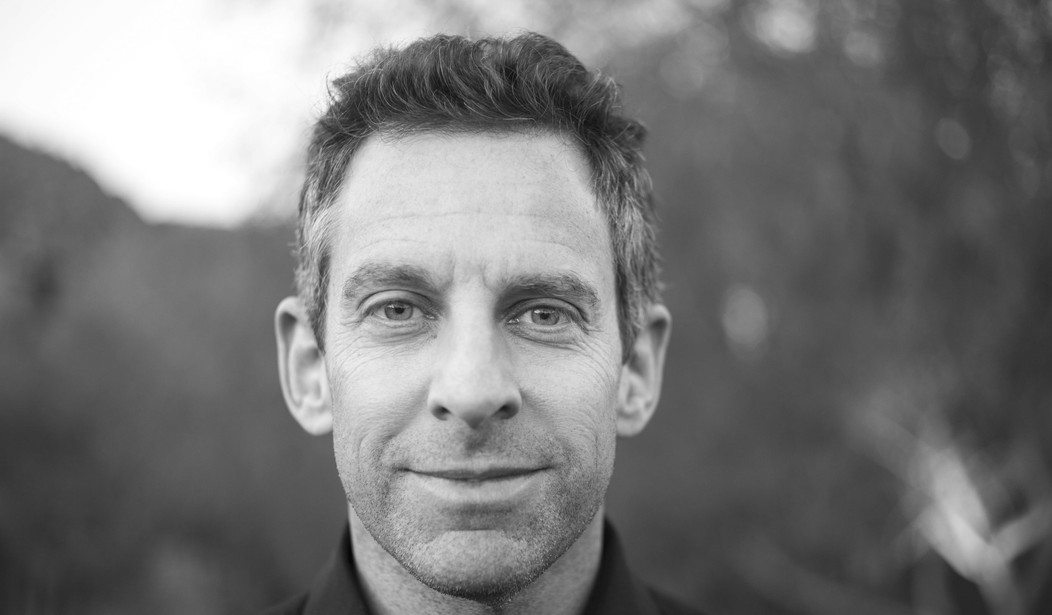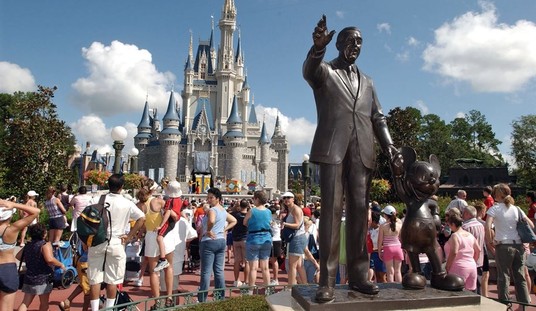Prominent atheist neuroscientist and bestselling author Sam Harris has deleted his Patreon account, blasting the crowdfunding site for banning conservatives. While Harris did not mention the Southern Poverty Law Center (SPLC), Patreon’s actions suggest it uses the SPLC list of “hate groups” to target conservatives.
“As many of you know, the crowdfunding site Patreon has banned several prominent content creators from its platform. While the company insists that each was in violation of its terms of service, these recent expulsions seem more readily explained by political bias,” Harris wrote in a statement he published Sunday, announcing he would delete his account Monday.
— Sam Harris (@SamHarrisOrg) December 17, 2018
“Although I don’t share the politics of the banned members, I consider it no longer tenable to expose any part of my podcast funding to the whims of Patreon’s ‘Trust and Safety’ committee,” Harris added.
Harris is a friend of Muslim reformer Maajid Nawaz, whom the SPLC defamed as an “anti-Islamic extremist” in 2016. Nawaz filed a defamation lawsuit last year, which the SPLC settled for $3.375 million this past June. Following that settlement, about 60 organizations also maligned by the SPLC considered their own defamation lawsuits.
Harris came to Nawaz’s defense in 2016, rightly slamming the SPLC’s defamation.
The atheist author runs a podcast, “Waking Up,” and his Patreon account supports that project. Before deleting his account, Harris had 9,000 paying patrons, according to the Patreon-tracking site Graphtreon. This made his the fourth-largest podcast account and the 11th-largest account overall, Business Insider reported. Graphtreon estimated that Harris has made between $23,000 and $65,000 from Patreon per episode.
The crowdfunding site has ramped up its bans recently. Last week, Patreon banned Milo Yiannopoulos, who had attempted to use the site to fund his “magnificent 2019 comeback” tour. Then the site banned Carl Benjamin, a YouTube creator with more than 867,000 subscribers who is known as Sargon of Akkad.
In banning Yiannopoulos, Patreon referenced his association with the Proud Boys, a group Patreon previously banned and which the SPLC has marked a “hate group.”
In August, the crowdfunding site excluded James Allsup, a YouTuber and local Republican precinct officer, based on alleged associations with “hate groups.”
Also in August, Patreon closed the account of Jihad Watch founder Robert Spencer, a bestselling author of 16 books. At the time, Spencer told PJ Media he was considering legal action. The SPLC has marked Jihad Watch a “hate group” and Spencer “anti-Muslim,” a claim he refuted on his website.
“My lawyers have made inquiries with Patreon but I haven’t yet heard anything about the responses,” Spencer told PJ Media on Tuesday. “I have no doubt that [Patreon] banned me because of the [SPLC]’s years-long defamation of me and also am looking into suing the SPLC.”
My lawyers have made inquiries with Patreon but I haven't yet heard anything about the responses. I have no doubt that @Patreon banned me because of the @splcenter's years-long defamation of me and also am looking into suing the SPLC. https://t.co/MDGygt7alU
— Robert Spencer روبرت سبنسر (@jihadwatchRS) December 18, 2018
The SPLC started as a civil rights watchdog, taking the Ku Klux Klan to court for its terror. In recent decades, however, it added mainstream conservative and Christian groups to its “hate group” list. The group’s “hate map” inspired one terrorist to target the Family Research Council in 2012.
When Patreon closed Spencer’s account, it claimed Mastercard had demanded it.
Ever since the “Unite the Right” rally in Charlottesville, Va., last August, companies like Apple, mainstream media outlets like ABC, NBC, and CNN, and even powerful opinion molders like Google’s YouTube have turned to the SPLC as a primary source of information on “hate groups.”
Last year, the credit card processing website Vanco Payments refused to work with the Ruth Institute, a small Roman Catholic pro-family nonprofit, due to its presence on the “hate group” list. Amazon’s charity program Amazon Smile dropped D. James Kennedy Ministries and Alliance Defending Freedom (ADF) for the same reason. D. James Kennedy Ministries has sued Amazon and the SPLC for this action.
Unsatisfied with this malign influence, the SPLC has pressured big tech companies to “Change the Terms” and kick “hate” off the Internet. This week, they took part in a campaign to force Facebook CEO Mark Zuckerberg and COO Sheryl Sandberg off the company’s board of directors, and get a representative of their views on that board.
Patreon did not respond to a request from PJ Media to get a comment on whether or not the removal of “hate groups” from the platform was inspired by the SPLC.
In a statement Monday about the banning of Carl Benjamin, the company pointed to its “Community Guidelines” against “hate speech.” According to that site, “Hate speech includes serious attacks, or even negative generalizations, of people based on their race [and] sexual orientation.”
Yet Patreon refuses to ban liberals who advocate violent insurrection involving pipe bombs and shotguns. Patreon did not respond to a request for comment about this double standard, either.
Follow the author of this article on Twitter at @Tyler2ONeil.









Join the conversation as a VIP Member